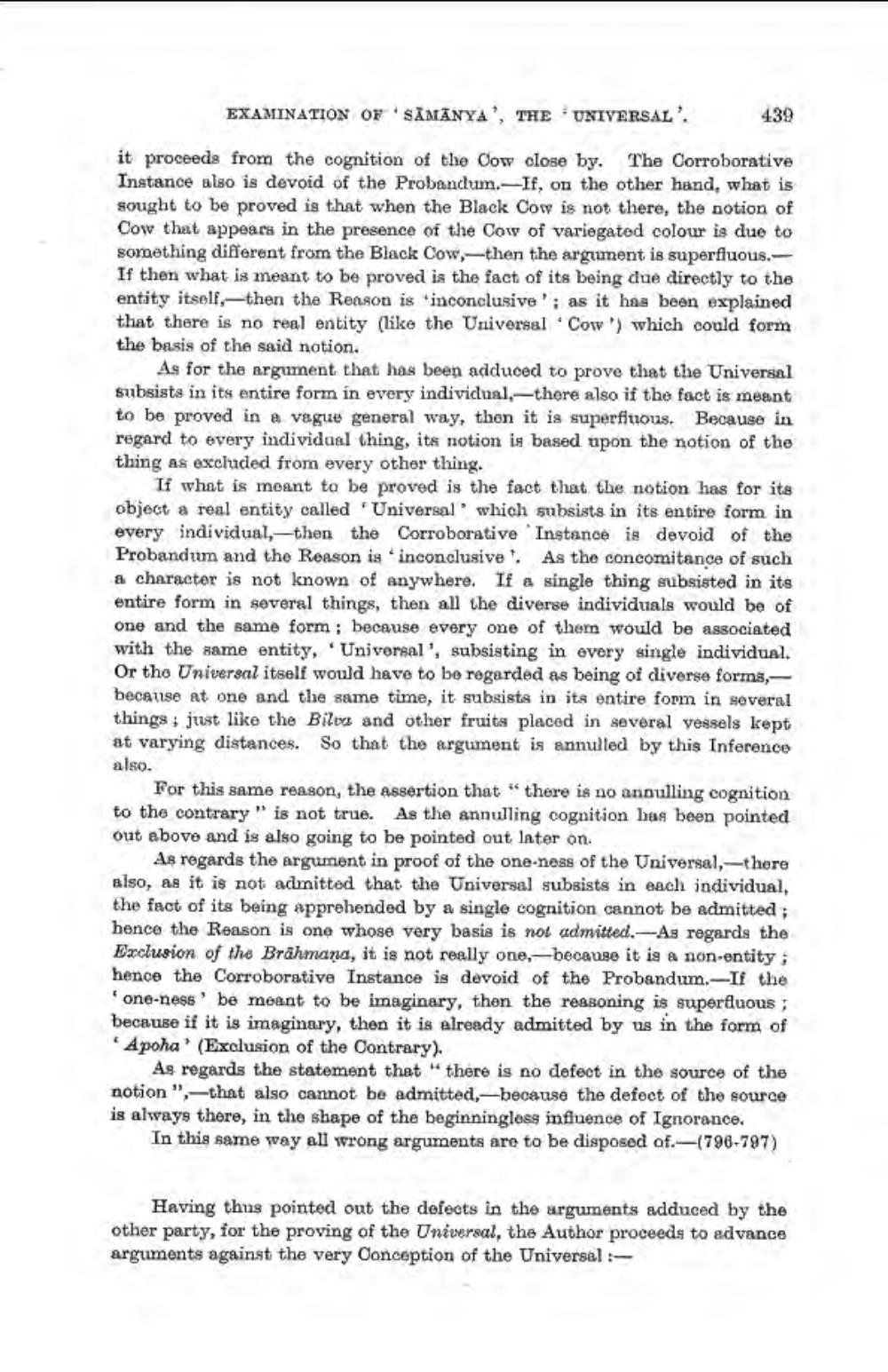________________
EXAMINATION OF SĀMĀNYA', THE UNIVERSAL.
439
it proceeds from the cognition of the Cow close by. The Corroborative Instance also is devoid of the Probandum.-If, on the other hand, what is sought to be proved is that when the Black Cow is not there, the notion of Cow that appears in the presence of the Cow of variegated colour is due to soroething different from the Black Cow,—then the argument is superfluous. If then what is meant to be proved is the fact of its being due directly to the entity itself, then the Reason is 'inconclusive'; as it has been explained that there is no real entity (like the Universal Cow') which could form the basis of the said notion.
As for the argument that has been adduced to prove that the Universal subsists in its entire form in every individual, there also is the fact is meant to be proved in a vegue general way, then it is superfluous. Because in regard to every individual thing, its notion is based upon the notion of the thing as excluded from every other thing.
If what is meant to be proved is the fact that the notion has for its object a real entity called 'Universal' which subsists in its entire form in every individual,—then the Corroborative Instance is devoid of the Probandum and the Reason is inconclusive. As the concomitance of such a character is not known of anywhere. If a single thing subsisted in its entire form in several things, then all the diverse individuals would be of one and the same form; because every one of them would be associated with the same entity, Universal', subsisting in every single individual. Or the Universal itself would have to be regarded as being of diverse forms, because at one and the same time, it subsists in its entire form in several things; just like the Bilves and other fruits placed in several yessels kept at varying distances. So that the argument is annulled by this Inference also.
For this same reason, the Assertion that "there is no anoulling cognition to the contrary" is not true. As the annulling cognition has been pointed out above and is also going to be pointed out later on.
As regards the argument in proof of the one-ness of the Universal,--there also, as it is not admitted that the Universal subsists in each individual, the fact of its being apprehended by a single cognition cannot be admitted ; hence the Reason is one whose very basis is not admitted.--As regards the Exclusion of the Brāhmana, it is not really one-because it is a non-entity; hence the Corroborative Instance is devoid of the Probandum.-If the
one-ness' be meant to be imaginary, then the reasoning is superfluous; because if it is imaginary, then it is already admitted by us in the form of Apoha' (Exclusion of the Contrary).
As regards the statement that there is no defect in the source of the notion ", -that also cannot be admitted, because the defect of the source is always there, in the shape of the beginningless influence of Ignorance.
In this same way all wrong arguments are to be disposed of. (796-797)
Having thus pointed out the defects in the arguments adduced by the other party, for the proving of the Universal, the Author proceeds to advance arguments against the very Conception of the Universal -




